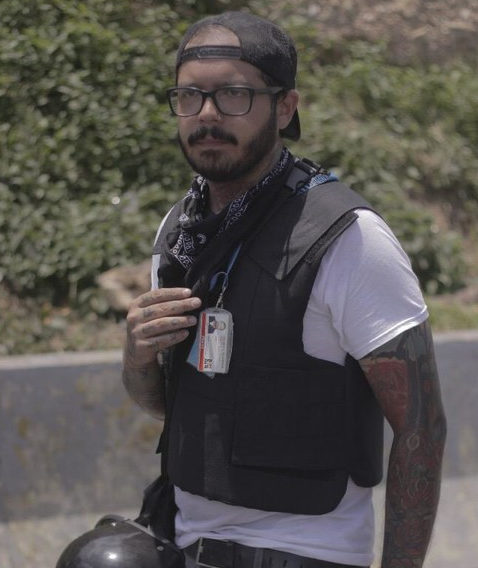Fuente: Free Press Unlimited
Journalists in Venezuela risk attacks, detention and prosecution. Melanio Escobar helps reporters protect themselves with technology. ‘There will be more madness against journalists,’ he tells Free Press Unlimited.
Three weeks ago, Venezuelan opposition leader Juan Guaidó made his boldest attempt yet at ending the rule of President Nicolás Maduro. Speaking from an air force base, he called on the military and ordinary Venezuelans to take to the street to “achieve freedom and democracy in Venezuela”.
The uprising failed and today, the situation in Venezuela is extremely tense. Melanio Escobar is a journalist, digital security expert and the executive director of NGO Redes Ayuda and the Humano Derecho radio station. He says the government has been using Guaidó’s attempt to unseat Maduro as a pretext to crack down even harder on those who oppose him: “In the past three weeks, [Maduro] has incarcerated major people from the opposition and he is using more violence against demonstrations and protesters.”
Venezuela has been plagued by hyperinflation and severe shortages of food and medicine for years. The economic crisis under President Nicolás Maduro is so dire that millions of Venezuelans have fled the country.
To maintain his grip on power, Maduro has long tried to silence independent voices. Venezuelan media is entirely dominated by the government. Independent news websites and social media channels are routinely blocked. The Maduro regime has also detained people for speaking out on social media, and uses a range of online surveillance tools to identify and track people to be jailed.
“In the middle of that chaos, I found myself training activists around the country about digital security, how to avoid being tracked by the government and how to protect yourself online,” Escobar said.
“The regime allows the collectives to operate outside of the law in return for stopping the journalists covering the protests”
Melanio Escobar
Building on these efforts, Escobar founded Redes Ayuda in 2014. The organisation uses technology and communications to empower NGOs and activists across Latin America, with digital and physical security training as well as advocacy.
RedesAyuda has been a partner of Free Press Unlimited since 2017. The organisation implements our Reporters Respond emergency fund and the Legal Defense Fund within Venezuela. Their local knowledge makes them better equipped to provide legal advice and respond immediately to journalists in distress.
“With press freedom and freedom of expression in a downward spiral, these funds are very needed. Journalists who report on what to do during internet shutdowns and power cuts are frequently being detained.”
Escobar said
Due to his work, Escobar himself has been assaulted many times by state security bodies and by government-sponsored armed gangs locally called colectivos, or collectives: “The regime allows the collectives to operate outside of the law in return for stopping the journalists covering the protests.”
In the coming weeks, Escobar expects more repression, more persecution and more “madness” against journalists: “There will be more blackouts, especially social media sites will be blocked.”
He believes it might still take some time for Maduro’s regime to fall. And when it does, a lot will need to happen to make Venezuela’s press free and fair. Escobar: “People will have a thousand priorities before they start talking about the media. Most of the traditional media are led by people who have been serving the Maduro regime for a long time. We will need to start a dialogue with them and explain the importance of an independent press.”
